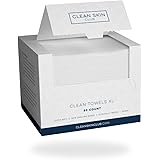Here’s what you need to know about COVID, flu and RSV vaccines in Ottawa this fall

Ottawa Public Health is urging all residents to protect themselves against the flu and COVID this fall and winter.
As of this week, individuals at increased risk of infection or flu-related complications are eligible to receive the updated COVID-19 vaccine and flu shot. As of Oct. 28, all individuals six months of age and older in Ontario are eligible for the updated COVID vaccine and the flu shot through local pharmacies and healthcare providers.
Shoppers Drug Mart pharmacist Jordan Clark spoke with CTV Morning Live about what you need to know about the COVID shot, flu shot and RSV protection this fall.
COVID
Ottawa Public Health says the updated KP.2 COVID-19 mRNA vaccine is expected to enhance protection against infection and severe outcomes from COVID-19.
Clark says anyone who hasn’t received a COVID vaccine in the last six months should receive the updated COVID vaccine this fall.
“Particularly those who may have other illness, elderly, pregnant women, certainly those that are at high-risk of having complications from COVID,” Clark told CTV Morning Live on Friday.
“Certainly, COVID isn’t the same infection that we were seeing a few years ago. People, generally, aren’t getting as sick, aren’t having as many complications because of the vaccines. For those who haven’t been vaccinated, they should think about getting one at their pharmacy or their doctor’s office.”
Initial doses of the updated COVID-19 vaccine are available for individuals at increased risk of COVID-19 infection, including adults 65 and older, residents living in long-term care homes and other congregate living settings, pregnant individuals and individuals from First Nations, Métis and Inuit communities.
As of Oct. 28, the updated COVID-19 vaccine will be available for all residents aged six months and older.
CTV Morning Live asked Clark when you should get the updated COVID-19 vaccine if you’ve recently had COVID.
“Three to six months after you’ve had COVID, consider getting another COVID vaccine,” Clark said.
“If you’ve had it, you’re going to have that immunity that’s going to last for probably six months or maybe a little bit more.”
Flu Shot
All residents aged six months and older are encouraged to get their annual flu vaccine “as soon as possible this flu season,” according to Ottawa Public Health.
“A flu shot is a great idea for everyone, even if you’re otherwise healthy, because most people have someone in their life that could be a high risk that you could pass it on,” Clark told CTV Morning Live.
“If you do get the flu, you’re going to recover a lot faster than if you hadn’t had that important flu shot.”
Ottawa Public Health notes the flu can cause serious illnesses and can result in complications and hospitalizations, especially for older adults and young children.
As of Oct. 15, pharmacies are offering the flu vaccine to individuals at high risk of flu-related complications, including children under the age of 5 and adults over the age of 65, residents and staff in congregate living settings, pregnant individuals, people with underlying health conditions and first responders and health care workers.
Starting Oct. 28, all individuals six months of age and older are eligible to get the flu shot through local pharmacies and healthcare providers.
Clark was asked how long it takes for the flu vaccine to provide immunity.
“With most vaccines, it’s about two weeks for your body to mount that proper response that your immune system is going to kick in,” Clark said.
He also recommends not waiting a long time into the flu season to get the updated shot this fall.
“We usually say get it early because it will take about two weeks. If you get it mid to late October, we start to see some influenza activity, usually in and around November. Prevention is key; get it as early as you can.”
RSV
“It’s a virus that’s been around a long time,” Clark said.
Respiratory Syncytial Virus (RSV) is a highly contagious respiratory illness that is particularly severe in infants and older adults, according to Ottawa Public Health.
“Most of us have had RSV; even by the time we’re five years old, most people have had an RSV infection,” Clark says.
“For most people, it’s pretty mild – it’s like a common cold. But there are some people, particularly those over 60, babies, people with chronic conditions it can lead to things like phenomena, bronchiolitis and other complications.”
Clark says the vaccine for RSV is a nasal prescription.
“This isn’t one that everyone is going to come in and get. People over 60 should consider it; pregnant women can get it towards the end of term – it’s going to provide protection to their baby.”
The RSV vaccine is available for free for all infants after birth and high-risk children up to 24 months and is covered for pregnant women between 32 and 36 weeks. The Ministry of Health also offers the RSV vaccine to high-risk older adults.
Clark recommends speaking with your pharmacist or doctor if you have questions about the RSV vaccine.
With files from CTV News Ottawa’s Katelyn Wilson
View original article here Source









